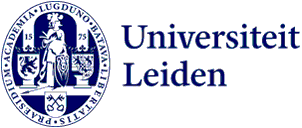Programme
When deciding what to study you undoubtedly read a lot of information about your study programme. Leiden University employs various systems to provide information about programmes and courses and to facilitate communication between lecturers and students.
The Prospectus contains information about all the courses within your study programme. Here you can find all you need to know about your programme. Via the online learning environment Brightspace you can communicate with your lecturers and submit assignments.
Graduates of the one-year master’s programme in Classics and Ancient Civilizations: Assyriology are ideally suited to pursue junior research positions both in academic and semi-academic working environments. They are fully trained academics, capable of solving research problems independently and in a critical and creative manner, as well as reporting on the results of their research convincingly, both orally and in writing. In the course of the programme, they acquire a complete overview of the language, culture and archaeology of the chosen area within Mesopotamia or Anatolia, at the level required for a one-year master’s graduate.
Programme details
The Master’s programme consists of two semesters of 30 EC each. In the first semester, students take three courses of 10 EC and start the Classics and Ancient Civilizations MA-Seminar. In the second semester, they take one more course of 10 EC and write their Master’s thesis, while taking the second part of the MA-Seminar.
Selection of courses on offer (the topics of courses on offer can vary every academic year):
- Tutorial Akkadian
- Akkadian Literary Texts
- The Sumerian Language: Structure and Analysis
- Hittite: Structure and Analysis
- Epic Tales from the Ancient World
- Cuneiform Epigraphy
- Old Assyrian Archives
All ancient languages in our programme can be followed at advanced and introductory level. It is also possible to follow courses from other MA-programmes and combine these into a coherent package, for instance in the field of Hittite and Anatolian studies (in combination with courses from the MA Linguistics) or in Ancient Near Eastern Archaeology (at the Faculty of Archaeology).
The Prospectus contains overviews and course details for all programmes in the Faculty of Humanities (and other faculties). The information in the Prospectus is updated annually, in June. Please consult the Assyriology section of the Prospectus for more information.
Study Plan
At the start of their studies, students are required to hand in the form Study Plan MA Classics and Ancient Civilizations to the Co-ordinator of Studies in order to check if the study plan meets the requirements of the Master programme.
Should the study plan contain other courses than listed on the e-Prospectus, the Co-ordinator of Studies will send the form to the Board of Examiners for approval.
Guide to Academic Skills Classics and Ancient Civilizations
This guide aims to describe the academic skills that you need to master when following the (Res)MA programme in Classics and Ancient Civilizations. As an MA student, you will need to employ general academic skills: you should be able to conduct research and present the results of that research in papers and theses, or in oral presentations. And you should be able to engage in critical discussions of research with your peers and teachers. Accordingly, the general academic skills that you should master include research skills, writing skills, oral presentation skills, and cooperative skills. This guide provides an overview of these skills, and consists of practical information about relevant sources, reference works and tools, examples of grading forms and lists do’s and don’ts for oral and written presentations.
